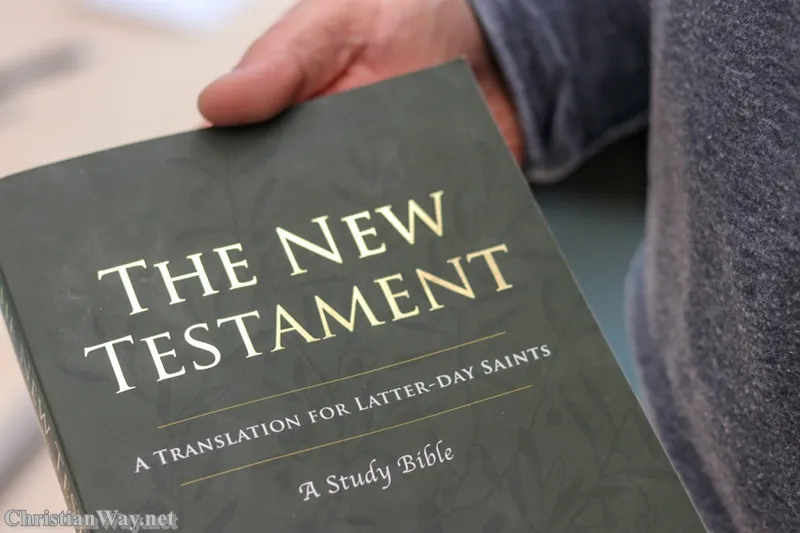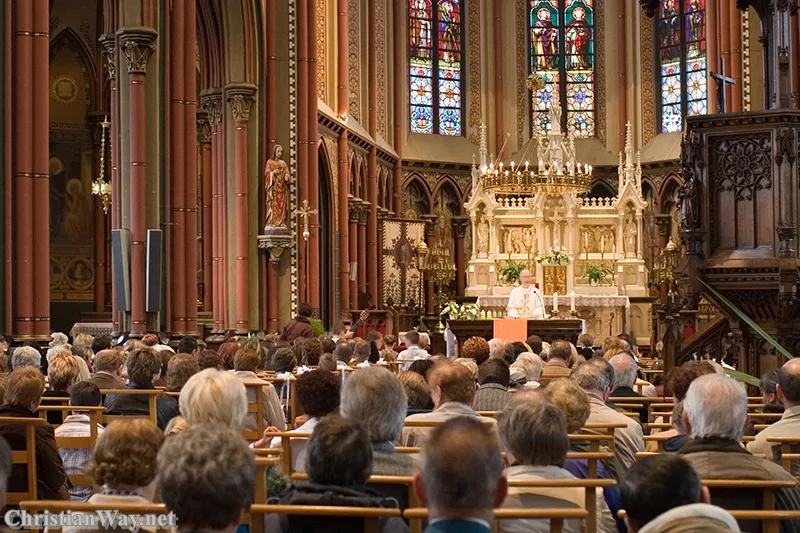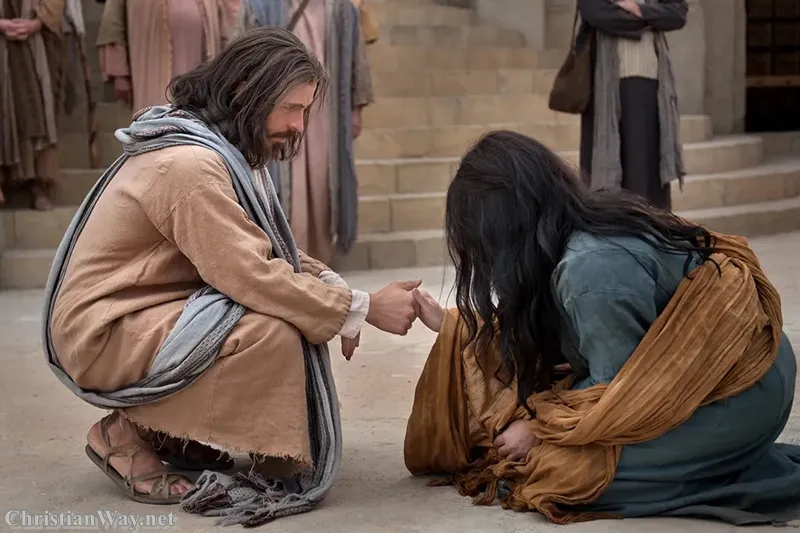Dear friends in Christ,
Every heart that has ever reached toward heaven has, in some way, been reaching toward the mystery contained in the New Testament. It is not merely a collection of sacred writings or moral teachings—it is the revelation of God’s own heart, given to us in Jesus Christ. In these inspired pages, the divine promise whispered through the prophets finds its fulfillment. The Word of God, once spoken in fragments and shadows, becomes flesh and dwells among us (John 1:14).
The New Testament is the story of God’s love entering history in a new way—not through the tablets of stone, but through the pierced hands of His Son. It is the covenant of grace, sealed not with animal sacrifice but with the blood of the Lamb who takes away the sin of the world. Through it, we encounter not only words, but a Person; not only commandments, but communion.

Let us journey through this sacred covenant, tracing how the New Testament reveals Christ, renews humanity, and calls each of us to live in the light of divine love.
The Covenant of Fulfillment
The word “testament” itself means “covenant.” The Old Covenant, given through Moses, was a sacred bond of law and promise between God and His chosen people. The New Covenant, proclaimed by Christ at the Last Supper—“This cup is the new covenant in my blood” (Luke 22:20)—is the fulfillment and perfection of that promise.
From Shadow to Substance
The Old Covenant prepared humanity for the coming of the Redeemer. It taught righteousness, obedience, and trust. But it also pointed beyond itself, to something greater. The prophets spoke of a time when God would “write His law upon our hearts” (Jeremiah 31:33). That prophecy finds its answer in the coming of Christ.
Where once the divine law was external—written on stone, mediated by prophets—now it is written within us by the Holy Spirit. The New Testament is thus not the rejection of the old, but its blossoming into fullness. As Christ Himself said, “I have not come to abolish the Law or the Prophets, but to fulfill them” (Matthew 5:17).
The Word Made Flesh
At the heart of the New Testament stands a mystery that no philosophy could have imagined: God becomes man. The eternal Son enters our time, our weakness, our sorrow. St. John writes, “The Word was with God, and the Word was God… and the Word became flesh and dwelt among us” (John 1:1,14).
Here begins the Gospel—the good news that God’s love is not distant but incarnate. Through Jesus Christ, heaven and earth are joined, and the human story is forever changed.
The Gospel: The Heartbeat of the New Testament
One Message, Four Witnesses
At the core of the New Testament are the four Gospels—Matthew, Mark, Luke, and John. They are not four different versions of truth, but four windows through which the same radiant light of Christ shines in distinct colors.
- Matthew presents Jesus as the promised Messiah, the fulfillment of the Law and the Prophets.
- Mark, the shortest and most immediate, reveals the power and urgency of the Kingdom of God breaking into history.
- Luke, the physician of souls, shows us the tenderness and mercy of Christ, the Savior for all nations.
- John, the beloved disciple, lifts us into the contemplative heights of divine love, revealing Jesus as the eternal Word and Son of God.
Each Gospel begins in time but leads us toward eternity. Each tells us not just what Jesus did, but who Jesus is—the Redeemer of humanity, the face of the Father’s mercy.
The Kingdom Within
The message of Jesus is not primarily about rules or systems; it is about a relationship—the restoration of our communion with God. “The kingdom of God is within you,” He tells us (Luke 17:21). The New Testament calls us to live as citizens of this kingdom, not by earthly power but by the power of love.
Christ’s parables—those simple stories of seeds, fields, and pearls—reveal the hidden wisdom of God. They speak to the heart: the Kingdom begins small, grows quietly, and bears fruit in those who open their hearts to grace.
The Apostolic Witness
The Birth of the Church
The New Testament is not only about Christ’s life on earth but also about the birth of His Body, the Church. After the Resurrection, Jesus entrusted His mission to the Apostles, breathing upon them the Holy Spirit (John 20:22) and sending them to the ends of the earth.
The Acts of the Apostles, written by St. Luke, continues the story of the Gospel. It shows the Church’s first steps—bold, humble, and Spirit-filled. We see Peter preaching at Pentecost, Paul traveling across continents, and communities of believers gathering to “devote themselves to the apostles’ teaching and to the breaking of bread” (Acts 2:42).
This is the Church’s heartbeat: the Word proclaimed, the Eucharist celebrated, and the love of Christ shared.
Letters from the Heart of the Faith
The Epistles, or letters, form much of the New Testament. They are not abstract theological essays but living correspondence—real words written to real communities struggling to live their faith.
In them, Paul, Peter, James, John, and others speak as pastors and fathers in Christ. They teach about grace, unity, forgiveness, charity, and endurance in suffering. They remind the faithful that salvation is not a moment, but a journey: “Work out your salvation with fear and trembling, for it is God who works in you” (Philippians 2:12-13).
These letters remain timeless, speaking across centuries to every believer who seeks to walk in faith.
The New Law of Love
The Beatitudes and the Cross
If the Old Testament gave us the Ten Commandments, the New Testament gives us the Beatitudes. Jesus lifts the moral law into the realm of grace: “Blessed are the poor in spirit… blessed are the merciful… blessed are the peacemakers” (Matthew 5:3–9).
The Beatitudes are not mere virtues; they are portraits of Christ Himself. In living them, we become more like Him. The Cross, too, stands at the center of the New Covenant—a love so complete that it embraces suffering and death for the sake of others.
The New Testament teaches that salvation is not earned but received, not achieved but given. “By grace you have been saved through faith” (Ephesians 2:8). Yet this grace calls us to respond with our lives, to become instruments of God’s mercy in a wounded world.
Revelation: The Glory to Come
The final book of the New Testament, Revelation, may seem mysterious, but at its heart it is a vision of hope. Written by St. John in exile, it unveils the ultimate victory of Christ—the Lamb who reigns over all creation.
It reminds us that history is not chaos but providence; that evil, though fierce, will not have the last word. “Behold, I make all things new,” Christ declares (Revelation 21:5).
For the believer, Revelation is not a code to decode but a promise to trust: the promise that the same Jesus who walked among us will one day wipe away every tear, and that the New Jerusalem—the eternal communion of God and His people—awaits us.
Living the New Testament Today
The New Testament is not a relic of the past; it is a living word. Every time we read it with faith, the Holy Spirit breathes life into our hearts. Scripture becomes a mirror in which we see both our weakness and God’s mercy.
To live the New Testament means to live in constant conversion—turning our hearts daily toward Christ. It means forgiving as we have been forgiven, loving as we have been loved, and proclaiming not ourselves but Christ Jesus as Lord.
In our modern world, filled with noise and distraction, the voice of the New Testament still speaks softly: “Come to me, all you who labor and are burdened, and I will give you rest” (Matthew 11:28).
When we let these words dwell richly within us, the same Spirit that moved the Apostles will move us too—to bring light into darkness, hope into despair, and peace into troubled hearts.
Reflect and Pray
The New Testament is the story of divine love written not only in ink but in blood, not only in history but in the human heart. Through its sacred pages, we come to know Christ—the Word made flesh—and through Him, the Father who loves us beyond measure.
May we read it not as spectators but as participants in its living truth. May we allow its words to shape our days, heal our wounds, and guide us home to the heart of God.
Let us pray:
Lord Jesus Christ, Word of the Father and Light of the world,
open our hearts to hear Your voice in the Scriptures.
May Your Gospel transform our minds, strengthen our faith,
and make us bearers of Your love in all we do.
Through You, who live and reign with the Father and the Holy Spirit,
one God, forever and ever. Amen.
— Fr. John Matthew, for Christian Way





